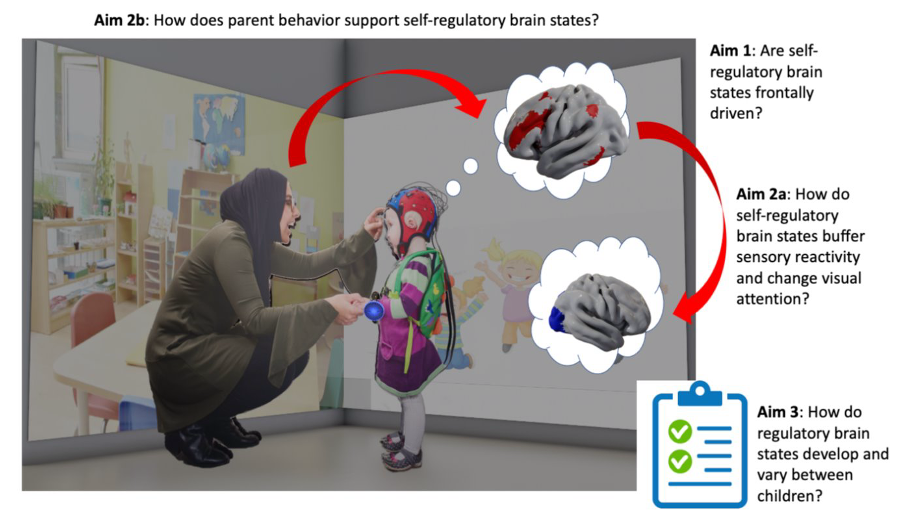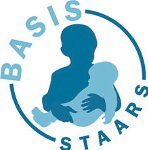About the Study:
The Stay Cool study is a follow-up of children who previously participated in the STAARS study during their infancy and toddlerhood. In the study, we measure self-regulation whilst participants complete play-based and child-friendly activities. We take a multimodal approach, using neuroimaging, physiological, and behavioural measurement techniques to explore self-regulation within the mind, brain, and body. Many of these measures are similar to the ones used in the STAARS study e.g., EEG, fNIRS, eye-tracking and standard tabletop and screen based tasks.
What is self-regulation and why are we studying it?
 Self-regulation is the ability to understand and control our own behaviours and responses to the world around us. This crucial skill fosters cooperation with others and builds resilience.
Self-regulation is the ability to understand and control our own behaviours and responses to the world around us. This crucial skill fosters cooperation with others and builds resilience.
Despite lots of studies in self-regulation in adults, we know very little about self-regulation in children. Traditional studies of self-regulation in adults often rely on tasks like complex planning, sustained attention, and multitasking, which may not accurately reflect the realities of childhood. In the Stay Cool study, me measure self-regulation during engaging and age-appropriate play-based activities, offering a more authentic understanding of this critical developmental process.
What are the study aims?




